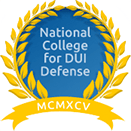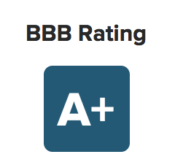If your child has been convicted of marijuana possession, he or she could face severe criminal penalties and they need an experienced attorney to help reduce the risks associated with this charge. Many underage kids do not take a simple marijuana charge very seriously, but a conviction of this offense could end in serious fines, loss of license, or even incarceration. For many juveniles, a loss of license makes everyday tasks, such as attending school or earning money from a part-time job, extremely difficult. The criminal defense lawyers at the Law Offices of John F. Marshall are prepared to defend your child throughout all phases of the juvenile complaint, including the delinquency adjudication and the resulting manner or disposition. We handle juvenile marijuana possession and distribution charges statewide, including Monmouth County, Middlesex County, Union County, Ocean County, Essex County, Somerset County, and Hudson County.
Juvenile Marijuana Possession
A juvenile can be charged with possession of marijuana or “simple possession” under either of these provisions, depending on the amount of the substance:
Possession of more than 50 grams of Marijuana. is a fourth degree offense under N.J.S.A. S2C: 35-10(3). If a Juvenile is found delinquent of possessing more than 50 grams of marijuana, which means they would be found guilty of the crime if they were an adult, they could face serious penalties. For a Fourth degree offense, a juvenile faces up to one year in a detention center, and imposes a fine of up to $25,000.00. Possession of 50 grams or less of marijuana. N.J.S.A. S 2C: 35-10(4): Juveniles found in possession of 50 grams or less of marijuana and with no intention to distribute are guilty of a disorderly persons offense. For a disorderly persons offense, a juvenile faces up to 6 months in a detention center. However, for first time offenders there is a presumption of non-incarceration penalty for any juvenile who committed an offense of the fourth degree or less, such as disorderly persons. The court can implement a variety of alternatives to incarceration including but not limited to: releasing the juvenile to the custody of his or her parents, order that the juvenile perform community services, participate in work programs, participate in academic or vocational education, or place the juvenile in an outpatient rehabilitation program for substance abuse. Moreover, under N.J.S.A. 2A: 4A-44(b)(1),. An experienced defense lawyer can sometimes get their client a differed disposition so that the juvenile’s complaint will be dismissed.
Juvenile Marijuana Possession with Intent to Distribute
A juvenile can be charged with possession of marijuana with intent to distribute under N.J.S.A. S 35-5(b), depending on the weight and location of the sales:
- More than 25 lbs of Marijuana (or 5 lbs or more of hash, or 50 or more marijuana plants) is a first degree crime. If convicted of this offense, the juvenile faces up to four years in a detention center, and up to $300,000 in fines.
- 5 – 25 lbs of Marijuana (also can be 10-49 marijuana plants or 1 -5 lbs of hash) is a crime of the second degree. If convicted of this offense, the juvenile faces up to three years in a detention center.
- Ounce – 5 lbs of Marijuana (also 5 grams – 1 pound of hash) is third degree crime. If convicted of this offense, a juvenile faces up to two years in a detention center, and may be fined up to $25,000.
- Less than 1 ounce of Marijuana, (or less than 5 grams of hash) is a crime of the fourth degree. If convicted of this offense, a juvenile faces up to one year in a detention center.
In order to prove a distribution case with a juvenile offender, prosecutor must establish several elements, including the weight of the marijuana for the degree of offense charged. In determining the grade of marijuana distribution, the state may aggregate (add up) the weight of each individual sale involved.
Juvenile Possession within a School Zone
A juvenile can be charged under N.J.S.A 2C:35-10 if his or her marijuana possession was on school property, or within 1,000 feet of a property used for school purposes. If the juvenile is convicted under this provision, he or she is required to perform a minimum of 100 hours of community service, in addition to any other sentence imposed by the court. It should be noted that it does not matter that you did not know you were in a school zone.
“Constructive Possession”
A juvenile can be charged with possession of marijuana without ever having actual control of the substance. Under N.J.S.A. 2C:35-10, a juvenile can be convicted of constructive possession of marijuana, which is defined as knowledge of the presence of marijuana along with the intention to exercise physical control over it. Therefore, physical control of the substance is not necessary to establish liability so long as there is manifested intention to exercise control. State v. Brown (1979).
Juvenile found with Marijuana Paraphernalia
A juvenile can be charged under N.J.S.A. 2C:36-2 for paraphernalia possession offense for having a variety of items including a pipe, bowl, bong, and even rolling paper–regardless if the items contain marijuana residue. This law covers hash and hashish as well. In determining whether an item is within the legal definition of “paraphernalia,” the following factors are considered: (1) statements of those in actual possession or constructive control of the alleged paraphernalia; (2) existence of any residue in the item; (3) direct or circumstantial evidence concerning use of the object; (4) instructions for use of the item; and (5) the legitimate uses for the item. “Intent” is crucial in determining whether there is actual or constructive possession. An accused must possess the intent to use the object as marijuana paraphernalia to be found guilty under this law. A conviction of this offense is a disorderly persons offense, and the juvenile faces up to six months in a detention center.
The increase in marijuana-related arrests in recent years has also caused a sudden spike in juvenile drug offense complaints. The penalties for juvenile possession and/or distribution of marijuana can be very severe and can include large fines, loss of license, and sometimes incarceration. If your child has been charged with a marijuana offense and is at risk of facing these harsh penalties contact an experience juvenile defense lawyer immediately. At the Law Offices of John F. Marshall, our lawyers, including a former New Jersey Prosecutor, have a combined 40 years experience of successfully defending our juvenile clients. We represent juveniles and their families all over state including Monmouth County, Union County, Ocean County, Mercer County, Essex County, Hudson County, and Middlesex County. Contact us today and speak to a qualified juvenile defense lawyer who can address your concerns.











